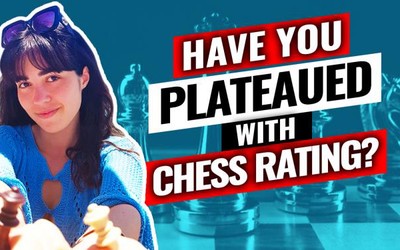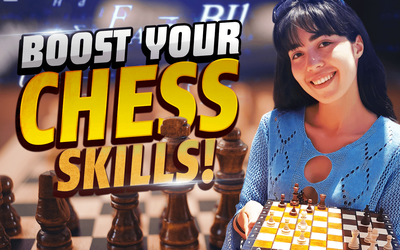
Study Plan for Intermediate Players
Once you’ve learned the fundamentals of chess, it’s time to graduate to the intermediate aspects of the game. As the name suggests, the concepts that you’ll learn here are more complex than what a basic chess game has to offer. With that in mind, as you advance in your knowledge of chess, you’ll need to learn the following:- The strength of the pawn structure.
One of the most important things that you need to pay attention to when playing chess is to keep your pawn structure intact. Creating random “pawn islands”, or isolated pawns can be a bad idea. It means that the isolated pawn is no longer protected by other pawns and that it’s vulnerable.
https://images.chesscomfiles.com/uploads/v1/images_users/tiny_mce/TijanaBlagojevic/phpGbcM1j.png
You should also learn to distinguish an open-pawn structure from a closed-pawn structure. For example, "an open pawn structure" is much more suitable for the use of bishops that can slice diagonally from one end of the board to the other, and knights would be less effective here. Vice-versa, in a closed pawn structure, the bishops would be blocked, and the knights would be able to jump around over pieces, making them much more usable.
- Weak squares
Closely related to the pawn structure is the concept of so-called weak squares. These are squares that aren’t protected by pawns. Knowing and noting which square is weak will give you insights into how to mount an attack on enemy territory. For example, if the opponent has left a weak square, and you lodge a knight into it, protecting it with a pawn of your own, then this knight can wreak havoc in your opponent’s entire structure. This will make the opponent’s pieces much more vulnerable to attacks.
- Learn how to maximize the strength of your pieces.
It’s very important to learn how to maximize the individual strengths of your pieces, and, vice-versa, minimize their weaknesses. As an example, setting a bishop in the “fianchetto” position right above a castled king gives it a lot of power, as it can shoot diagonally across the board and capture pieces or mount attacks. Likewise, if a bishop is blocked by your own pawn, then it means it would be unable to move as it will be blocked. The same can be said about all other pieces. You’ll want to do research and find the best positions for them in order to thrive in chess.
- Balancing initiative and material advantage of a position.
There are two main ways in which you can gain an advantage in chess. The first one is the advantage of having the initiative, and the latter is the advantage of having more piece-power than your opponent. Don’t underestimate the power of initiative – and don’t overestimate the power of having more pieces. Chances are that you’ve seen grandmaster chess games where one player sacrifices the queen to get the initiative – and then mates the opponent in the following moves. So, being able to know the merits of the advantage of the initiative and the material advantage is a core skill for intermediate chess players.
- Learn opening theory.
Of course, even novice chess players can learn a few openings and stick to them. Intermediate players need to learn opening theory a bit more in-depth. Remembering the opening moves by rote memorization is one thing. It’s another thing entirely to know why exactly you’re moving your pieces a certain way. Thinking like this will help not to do blunders down the line. Your opponents will frequently try to set up devastating opening-game traps. If you learn how to maneuver through the opening game well, it means that you’ve mastered the opening theory and that you can safely advance towards the middle game and endgame of chess.
Intermediate Chess
With this in mind, you’ll be able to advance your knowledge and skill in chess by leaps and bounds. The more you practice, the better will you become. Remember the core concepts and learn to think with your head – don’t just remember things by rote memorization. This will turn you into a skilled intermediate-level chess player.
Private lesson available at: chess-boost
Chessable course for Intermediate players: Everyone's First Strategy Kit
More blog posts by mlatb

Unlocking Strategies for Rapid Improvement
Most of the players, after finishing their games starts playing another chess game, which is why reg…
Tips for Moving Up to the Next Level
It can be frustrating to feel stuck at your current skill level, but don't worry – there are steps y…
Study Plan for Beginners
To learn to play a solid game of chess, you will need to master the basics, first. These are sets of…
